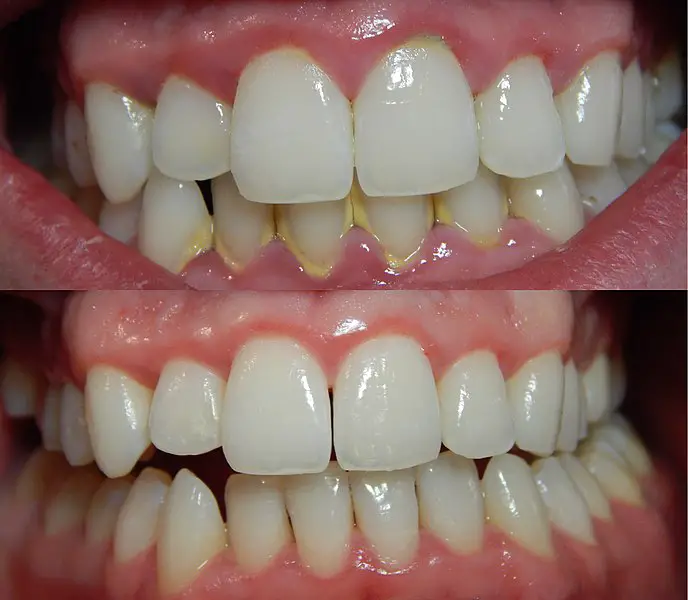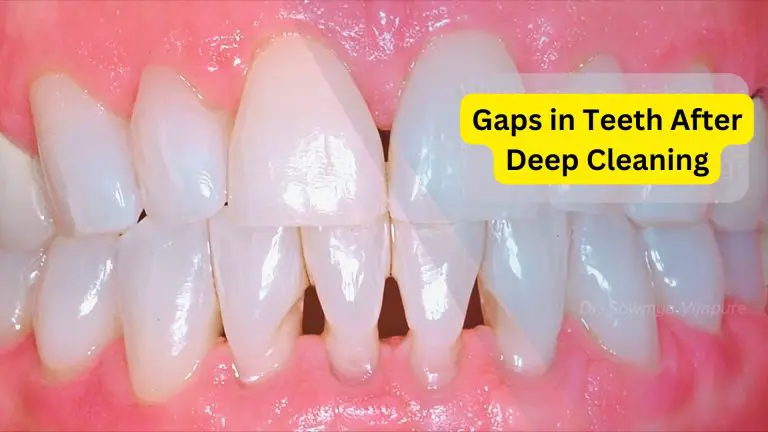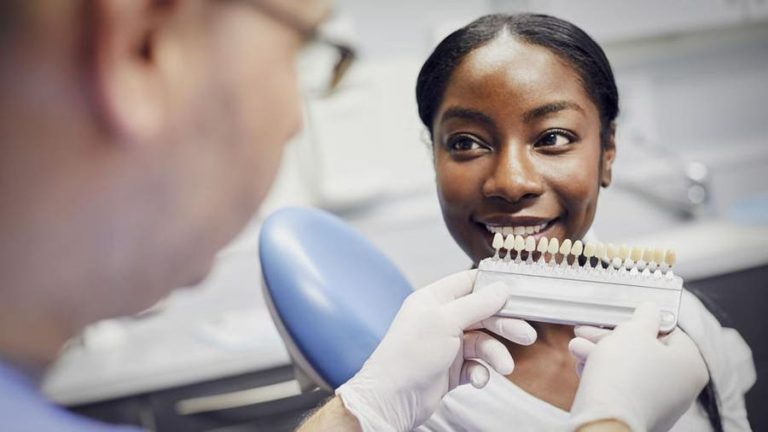How to Rehydrate Teeth After Whitening
Last Updated on 6 months by DR. ALBIN SIPES
How To rehydrate teeth after whitening? Drink plenty of water and avoid acidic foods and drinks. When you undergo teeth whitening treatments, it’s essential to take steps to rehydrate your teeth afterward.
A fundamental way to do this is by staying hydrated and drinking adequate water. Additionally, avoiding acidic foods and drinks is crucial, as these can further dehydrate your teeth. Proper rehydration helps prevent tooth sensitivity and damage and contributes to maintaining a healthy and vibrant smile.
This article will explore practical tips to rehydrate teeth after whitening and provide insight into maintaining optimal oral health. So, let’s dive in and discover how to keep your teeth hydrated for a beautiful smile that lasts.
Understanding The Effects Of Teeth Whitening On Tooth Moisture
Teeth whitening has become a popular cosmetic dental procedure, but many people may need to realize that it can affect the moisture levels in your teeth. Understanding the effects of teeth whitening on tooth moisture is crucial in maintaining oral health.
We will explore the science behind teeth whitening and dehydration, why moisture is vital for healthy teeth, and how teeth whitening affects tooth enamel.
The Science Behind Teeth Whitening And Dehydration
Teeth whitening is primarily achieved through bleaching agents like hydrogen or carbamide peroxide. These agents work by penetrating the enamel and breaking down the stains on the surface of the teeth. However, this process can also strip away some of the natural moisture in the teeth, leading to dehydration.
When the moisture in your teeth is depleted, it can result in several adverse effects. Not only does it make your teeth more prone to sensitivity, but it can also impact the overall health of your oral cavity. Therefore, taking steps to rehydrate your teeth after undergoing a whitening treatment is essential.
Why Moisture Is Important For Healthy Teeth
Moisture plays a crucial role in maintaining healthy teeth. It helps to keep the enamel strong and resilient, protecting the inner layers of the teeth from damage. Additionally, moisture serves as a lubricant, facilitating the natural processes of chewing and speaking.
Without sufficient moisture, your teeth may become more susceptible to cavities, enamel erosion, and other dental issues.
How Teeth Whitening Affects Tooth Enamel
Tooth enamel is the outermost layer of the teeth and serves as a protective barrier. However, teeth whitening can cause temporary changes to the enamel. The bleaching agents used in whitening treatments can open up the pores on the surface of the teeth, making them more porous and vulnerable to dehydration.
It is important to note that teeth whitening procedures conducted under the supervision of a dental professional are generally safe. However, improper use of whitening products or excessive treatments can damage enamel and increase tooth sensitivity. Therefore, it is crucial to follow the instructions provided by your dentist or use over-the-counter whitening products as directed.
Understanding the effects of teeth whitening on tooth moisture is essential for maintaining optimal oral health. Rehydrating your teeth after whitening treatments can help alleviate sensitivity and prevent potential enamel damage. Remember to consult your dentist for personalized advice and ensure you’re using whitening products correctly.
With proper care and attention, you can enjoy a brighter smile without compromising the health of your pearly whites.
5 Expert Tips To Rehydrate Teeth And Restore Moisture
Are you looking for expert tips to rehydrate your teeth after whitening? We’ve got you covered. After undergoing a teeth whitening treatment, it’s important to restore moisture to your teeth to keep them healthy and prevent unwanted side effects.
Here, we’ll share five expert tips to help you rehydrate your teeth and maintain that beautiful smile you’ve worked so hard for. Let’s dive in!
Tip 1: Increase Water Intake For Hydration
- Drink at least eight glasses of water per day to keep your body hydrated.
- Water helps replenish moisture in your mouth, including your teeth.
- Stay away from sugary drinks that can cause dehydration.
Tip 2: Use A Moisturizing Toothpaste
- Look for toothpaste with moisturizing properties.
- These toothpastes can help retain moisture in your teeth.
- Apply toothpaste with a soft-bristle toothbrush to avoid damaging the enamel.
Tip 3: Incorporate Foods High In Moisture Into Your Diet
- Eat foods with high water content, such as watermelon, cucumbers, and oranges.
- These foods can help rehydrate your teeth naturally.
- Avoid consuming excessively sugary or sticky foods that can lead to dryness.
Tip 4: Avoid Foods And Drinks That Cause Dehydration
- Limit your intake of caffeinated beverages like coffee and tea.
- Alcohol and acidic drinks can also contribute to dehydration.
- Opt for healthier alternatives like herbal teas and fresh fruit juices instead.
Tip 5: Use A Moisturizing Mouthwash
- Choose a mouthwash that includes moisturizing ingredients.
- Alcohol-based mouthwashes can dry out your mouth and teeth.
- Rinse your mouth with a moisturizing mouthwash after meals or as your dentist directs.
Following these expert tips, you can effectively rehydrate your teeth after a whitening treatment. Remember to prioritize hydration, incorporate moisturizing toothpaste and mouthwash into your routine, and choose foods and drinks that promote moisture. With these simple practices, you can maintain healthy, hydrated teeth and enjoy the benefits of a beautiful white smile.
Frequently Asked Questions For How To Rehydrate Teeth After Whitening
How Long After Teeth Whitening Can I Rehydrate My Teeth?
It is recommended to wait at least 30 minutes after teeth whitening before rehydrating your teeth to allow the whitening agent to fully penetrate your enamel. This will help maximize the effectiveness of the treatment and ensure optimal results.
What Can I Drink To Rehydrate My Teeth After Whitening?
After teeth whitening, drinking water to rehydrate your teeth is best. Avoid acidic beverages like citrus juices or carbonated drinks that can weaken the enamel. Water helps flush away any residual whitening gel and promotes saliva production, which aids in rehydration.
Can I Use Mouthwash To Rehydrate My Teeth After Whitening?
While using mouthwash after teeth whitening is generally safe, it is advisable to choose an alcohol-free mouthwash. This ensures that the mouthwash does not cause any further dryness in your mouth. Swishing water in your mouth for a few seconds can also effectively rehydrate your teeth.
How Can I Naturally Rehydrate My Teeth After Whitening?
To naturally rehydrate your teeth after whitening, consume foods high in water, such as cucumbers, watermelon, and celery. These foods promote saliva production, helping to rehydrate your teeth. Maintaining good oral hygiene practices, such as brushing and flossing regularly, will also contribute to rehydration.
Can I Use A Desensitizing Gel To Rehydrate My Teeth After Whitening?
Yes, using a desensitizing gel after teeth whitening can help rehydrate your teeth while minimizing any sensitivity you may experience. These gels typically contain potassium nitrate or fluoride, which aid in rehydration while relieving sensitivity.
Follow the instructions from your dentist or the product manufacturer for the best results.
Before the conclusion, you can read what dentaly.org says
Conclusion
To ensure your teeth stay hydrated and healthy after whitening, following a few simple steps is crucial. First, incorporating proper oral hygiene habits into your daily routine, such as brushing twice a day and flossing, will help maintain moisture within your teeth.
Additionally, drinking plenty of water throughout the day will keep you hydrated and aid in rehydrating your teeth. Avoiding acidic and sugary foods, which can dehydrate teeth, is also essential. Using a toothpaste that contains fluoride and remineralizing agents will further replenish moisture and strengthen enamel.
Lastly, scheduling regular dental check-ups will allow your dentist to monitor your oral health and provide any necessary treatments. Following these recommendations, you can ensure that your teeth remain hydrated, vibrant, and beautiful even after teeth whitening.



